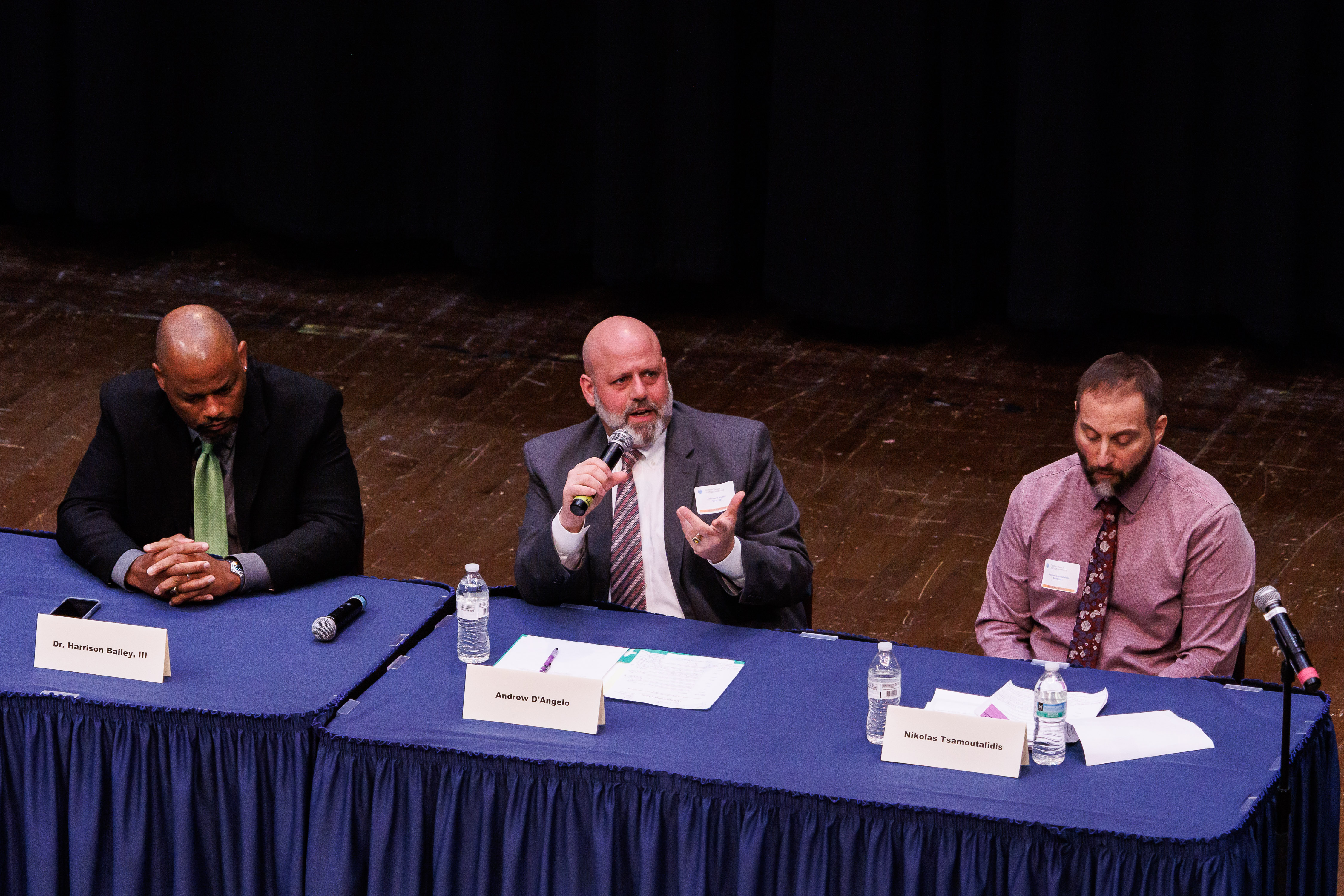Northampton Community College (NCC) collaborated with the Lehigh Valley Justice Institute (LVJI) this year for its annual Peace & Justice Conference held March 20 and 21. The two-day event explored the intersection of mental health and criminal justice.
Welcoming the audience on the conference’s opening day, Christine Pense, dean of NCC’s School of Arts, Humanities, and Social Sciences, specifically addressed the students in the room. “There is a reasoned line between research, policy, and advocacy. This is citizenship. We want you to learn, to think about your world.”

The conference’s first day was dedicated to the LVJI Symposium, including panel discussions around the topic of mental health as it relates to schools, police response, and the criminal justice system. Each panel featured experts who discussed mental health from the lens of their professional roles and fielded questions from the audience.
In his opening remarks, Joseph Welsh, executive director of LVJI, asserted, “You can’t talk about criminal justice without talking about the social determinates of criminal justice.”
For example, panelists for the Mental Health in Our Schools session discussed incorporating tactics into K-12 classrooms and providing training for teachers and school administrators to help deescalate behavioral issues. Ezra Homonoff, a school psychologist in New Haven, Conn., and consultant to LVJI, advocated for equipping students with problem-solving techniques to manage difficult emotions.
Harrison Bailey, III, recently appointed superintendent of the Wilson Area School District, discussed his tenure as principal of Liberty High School in Bethlehem, where he helped introduce professional development to train teachers on how to take a more trauma informed approach to education. It was about shifting that approach, he says, from “what is wrong with you” to “what happened to you” and normalizing the idea that it’s alright to ask for help.
The conference’s second day featured the unveiling of LVJI’s Injustice Map, an interactive map of the Lehigh Valley that overlays data sets from six key areas: demographics, education, healthcare, economics, criminal justice, and the environment. The creation of the map was supported by funding from NCC’s Annual Humanities Program.
Former U.S. Representative, Susan Wild, offered some remarks prior to the map unveiling. Calling LVJI’s work “so essential,” she shared how her interest in mental health issues and advocacy evolved from personal tragedy – her partner took his own life in 2019 after battling depression.
Megan Nocek, assistant professor of psychology and chair of this year’s Annual Humanities Program, introduced the map by sharing a conversation she had with a student who asked her how someone could ignore facts if the facts were supported by data, “I said, ‘Well, data gives us trends, but it doesn’t tell us why. The ‘why’ really matters.’”
Understanding the “why” is at the heart of this year’s Annual Humanities Program, themed “Stories That Shape Us: Turn the Page, Connect, Engage!” As part of the Peace & Justice Conference, there was a special screening of the documentary The Central Park Five at ArtsQuest in Bethlehem followed by a Q&A. The documentary tells the story of five Black and Latino young men who were tried and convicted in the “Central Park Jogger” case; their case was later overturned.
One of those young men, Yusef Salaam, now a New York City councilman, will deliver the Annual Humanities Program keynote lecture on Tuesday, April 15, at NCC’s Bethlehem campus. That event is free and open to the public.
Rounding out the conference was Mr. Nakamura, who discussed the Nakayoshi School Project, an initiative to help former child soldiers in the Democratic Republic of Congo reintegrate into society through education and vocational training.